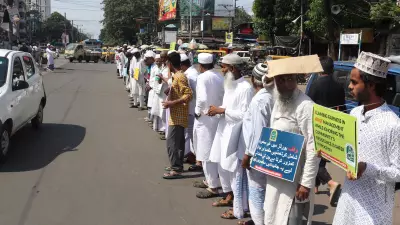
In a significant electoral milestone, Mizoram has successfully conducted the first-ever Electronic Voting Machine (EVM) randomization process for the upcoming Dampa constituency by-election, marking a historic moment in the state's democratic journey.
The crucial randomization exercise took place at the strong room of the Deputy Commissioner's office in Mamit district, where election officials meticulously carried out the process under strict security protocols and surveillance.
Transparent Electoral Process Takes Center Stage
The randomization procedure, witnessed by representatives from various political parties, ensures that EVMs are allocated randomly to different polling stations, eliminating any possibility of predetermined machine allocation and reinforcing the integrity of the electoral process.
District Election Officer and Deputy Commissioner of Mamit, Lavangliana, oversaw the entire process, emphasizing that this marks the inaugural EVM randomization specifically for the Dampa assembly constituency by-poll.
Comprehensive Security Measures Implemented
The randomized EVMs have been securely stored in the strong room with round-the-clock monitoring and multi-layered security arrangements. The election machinery has left no stone unturned in ensuring the sanctity of the electoral equipment until polling day.
This technological advancement in Mizoram's electoral system demonstrates the Election Commission's commitment to conducting free, fair, and transparent elections across the country.
What EVM Randomization Means for Voters
The randomization process serves multiple crucial purposes:
- Enhanced Transparency: Political parties can witness the entire allocation process
- Reduced Manipulation Risk: Random allocation prevents predetermined machine placement
- Increased Voter Confidence: Strengthens trust in the electronic voting system
- Standardized Procedure: Ensures uniform implementation across polling stations
The successful completion of this process sets a positive precedent for future elections in the northeastern state and reinforces India's position as a global leader in implementing technological solutions for democratic processes.





